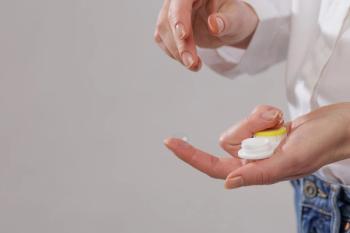
Focus on independence with pediatric patients
When working with pediatric low vision patients, it's important to assess what the accommodative demand will be for each individual, and strive to make each child as visually independent as possible.
Orlando, FL-When working with pediatric low vision patients, it's important to assess what the accommodative demand will be for each individual, and strive to make the children as visually independent as possible, said Ana M. Perez, OD, FAAO. Dr. Perez, adjunct assistant professor, University of Houston College of Optometry, and low vision specialist, Visual Impairment Services Outpatient Rehabilitation program, Michael E. DeBakey Veteran's Administration Hospital, Houston, spoke here at the annual meeting of the American Academy of Optometry.
Early exposure, early involvement
"Typically, a pediatrician or ophthalmologist will refer kids for early intervention programs, which is wonderful," Dr. Perez said. "But, the problem is that some of these kids are not exposed to the concept of using optical devices to enhance their vision until quite late, sometimes in their teens. By that time, they've missed out on developing that visual experience.
"I love working with kids who are 2, 3, and 4 years old," she added. "Get them when they're most curious and longing to explore their environment without concern for appearance or peer pressures, and teach them that there's more out there. This is especially true of objects that are far away, which, up until that point, have been of no consequence to their present status.
"There's a lot of information out there that they're not using and benefiting from," Dr. Perez continued. "So I start children using telescopes as soon as they're old enough to hold them and explore with them. It's exciting and motivates them to continue using the visual aids we can provide."
Newsletter
Want more insights like this? Subscribe to Optometry Times and get clinical pearls and practice tips delivered straight to your inbox.





























